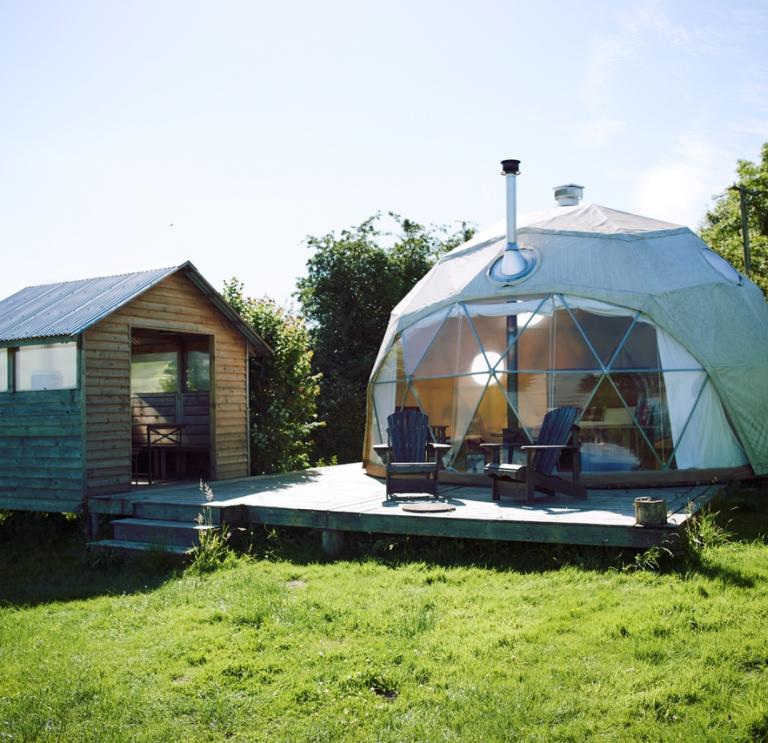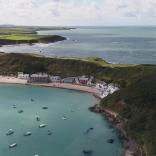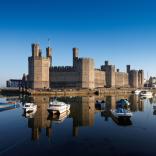Natural adventures
One fifth of Wales is covered by National Parks. And that’s without factoring in our protected Areas of Outstanding Natural Beauty (we have five), hundreds of miles of Heritage Coast and countless nature reserves. It’s an environment of dramatic mountain peaks, rolling hills, dense forests, green river valleys and nearly 900 miles/1,500km of sea-washed shorelines, brimming with outdoor activities that don’t cost the earth.
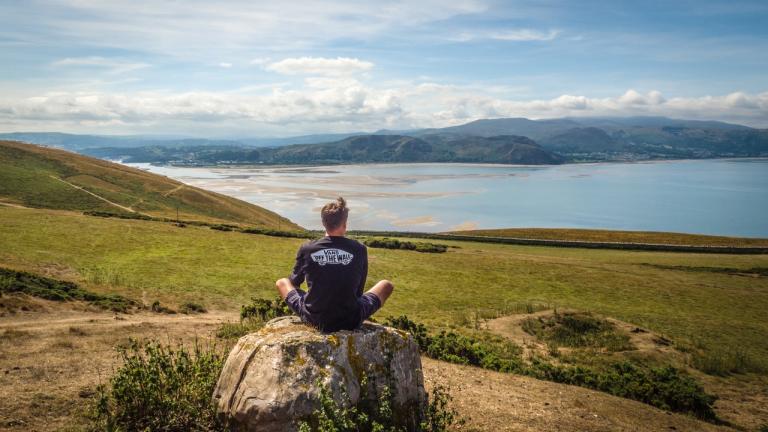
Sustainable stays
Get back to nature with a night (or two) in accommodation with the lightest of environmental footprints. A good example is Denmark Farm in the foothills of the Cambrian Mountains near Lampeter, which provides courses in crafts and cooking alongside comfy beds in yurts and eco-lodges. Or tuck yourself into a cosy caban (cabin) or shepherd’s hut at Hide in St Donats near the Glamorgan Heritage Coast.
Fforest, close to Cardigan, offers unusual hideaways – think space-age domes, canvas-topped cabins and rustic wooden shacks – scattered amongst peaceful woodland. You’ll also find an excellent choice of campsites, often in spectacular locations.
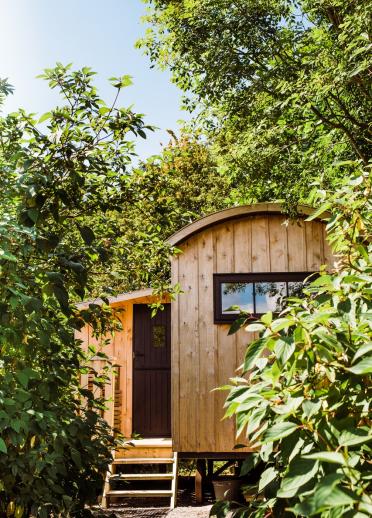
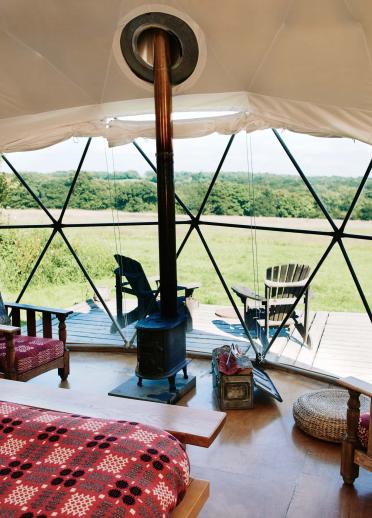
Innovation nation
We’ve been working to preserve our environment for a long time. The National Trust’s first site in 1895 was Dinas Oleu in Wales. The pioneering Centre for Alternative Technology near Machynlleth, founded in 1970, has spent decades researching renewable energy and sustainable building techniques. Your visit begins with a ride on its water-powered funicular railway.
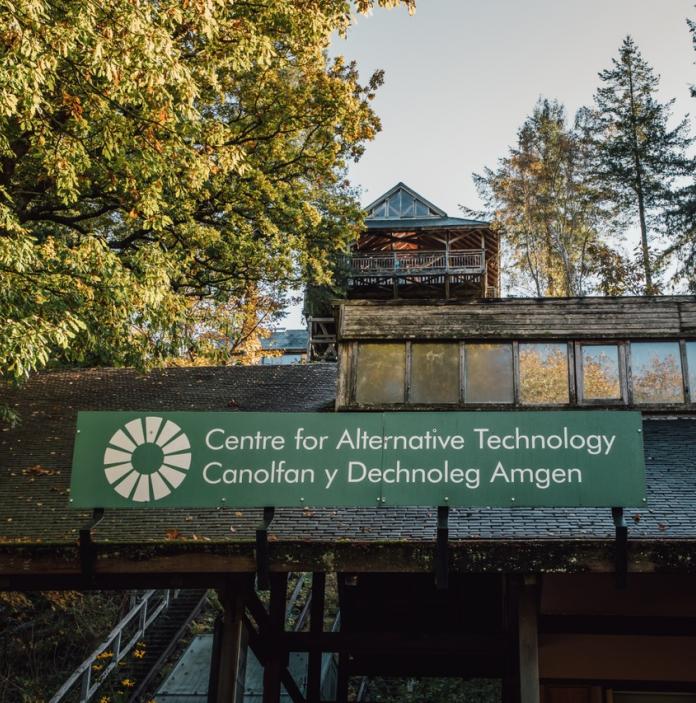
True tastes
Our fertile fields, sparkling seas and rushing rivers produce a bounty of fabulous food and drink. You can find Welsh specialities like saltmarsh lamb and Black beef at farmers’ markets and farm shops up and down the country, while independent food companies use locally sourced ingredients to create products prized across the world.
There’s Halen Môn sea salt, for example, extracted from Anglesey’s waters, Tŷ Nant mineral water from deep beneath the Cambrian Mountains and award-winning gin made with foraged botanicals by Dyfi Distillery. And that’s just a taster, there’s much more on the menu.

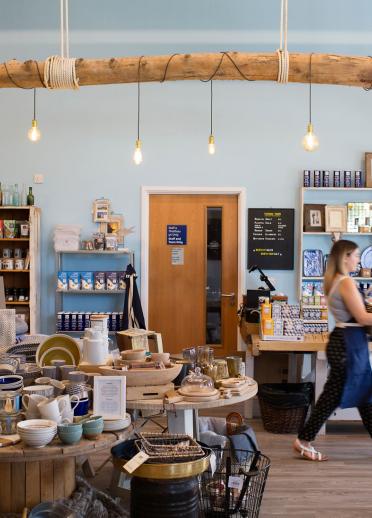
A natural choice
Covering 324 square miles/840 sq km of land and sea, the Dyfi Biosphere in Mid Wales has been recognised by UNESCO for its natural diversity and abundant wildlife. Laid out around the green Dyfi Valley, it’s home to important nature and conservation reserves. But the landscape is only part of its UNESCO status. It’s also a place where thriving communities exist in harmony with nature, preserving heritage, culture and language alongside the environment.
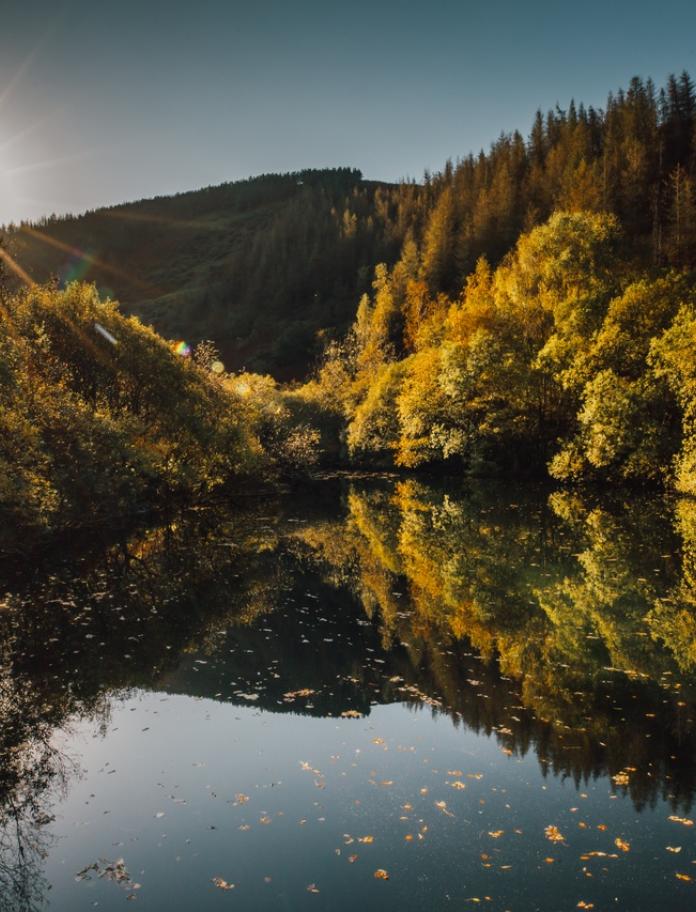
Green shoots
Pembrokeshire’s green scene is blossoming. St Davids, Britain’s smallest city, is big on eco-friendly initiatives. Follow the St Davids Eco Trail, eat at “field to fork” bistros, go foraging to learn about wild produce, or coasteering with an award-winning adventure company dedicated to sustainability. Lammas Eco Village near Crymych combines traditional farming techniques with the latest in environmental design.
And throughout the county you can travel with a light environmental footprint on handy hop-on, hop-off coastal bus services like the Poppit Rocket.
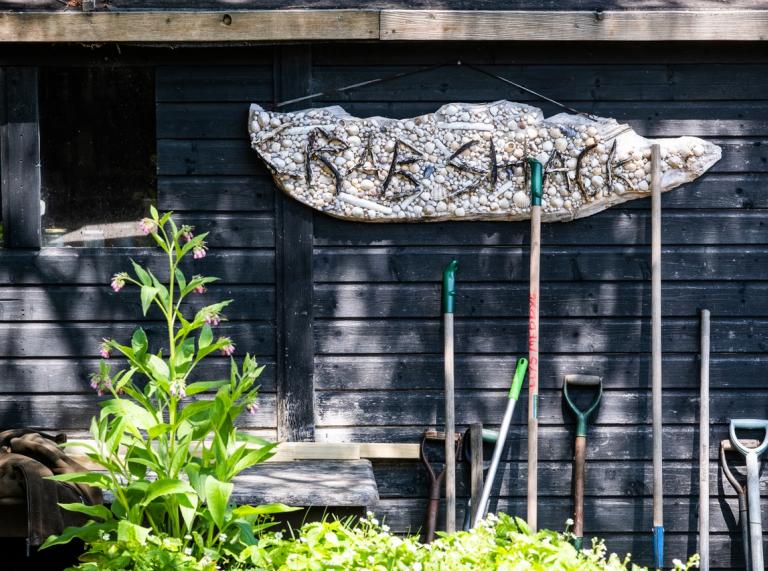
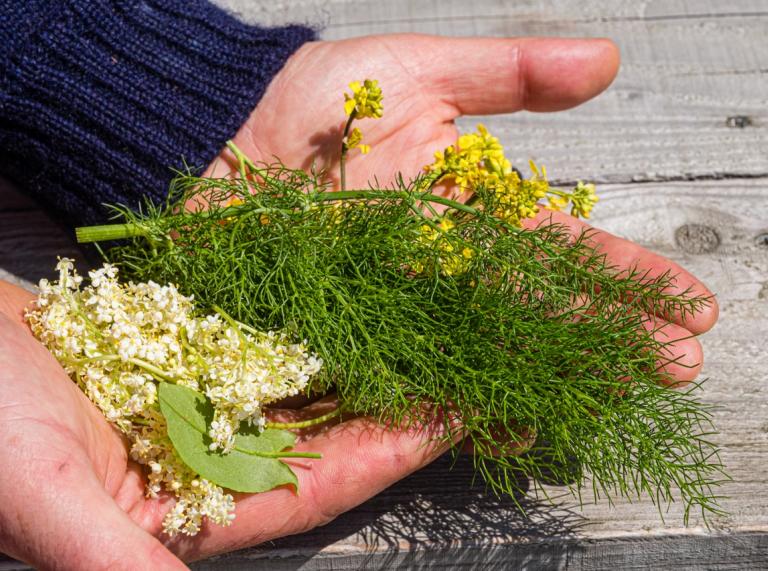
Green for go
- Anglesey is the UK’s first county to be awarded plastic-free community status.
- Conservation efforts have brought the iconic red kite back from near extinction in Wales. See hundreds at daily feeding sessions in Rhayader and Bwlch Nant yr Arian, Ponterwyd.
- Get up close and personal to the outdoors at the Down to Earth project on Gower, where you can try activities like coasteering, abseiling and tree climbing.
- The Principality Stadium in Cardiff has become the UK’s first sustainable stadium thanks to its innovative power and water saving technologies.
